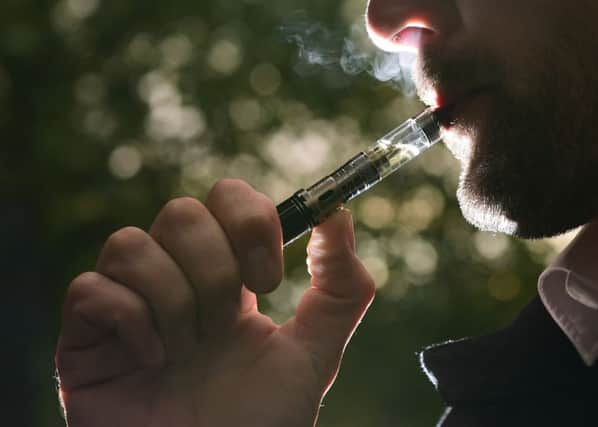Leader comment: Vaping the lesser evil in the battle against smoking


Electronic, or e-cigarettes, have also proved tremendously popular over the decade since their introduction, with dedicated shops now as common as mobile phone stores.
One in three smokers in Scotland have used them in an attempt to quit, with only 1 per cent of non-smokers giving them a try.
Advertisement
Hide AdAdvertisement
Hide AdAlthough long-term health studies have yet to prove it, experts believe vaping is far safer than reaching for a cigarette.
The Royal College of Physicians said the risks were less than 5 per cent of those linked with cigarettes.
What is known is the huge cost to smokers and Scotland of tobacco.
It remains the country’s biggest preventable killer, and, despite a significant reduction in the number of people smoking, still accounts for one in five deaths - or around 10,000 every year.
The habit also results in 128,000 annual hospital admissions and a drain of up to £500 million on the NHS every year.
For everyone else, e-cigarettes have literally come as a breath of fresh air.
Compared to the conclusively-proven dangers of second-hand smoke, especially on children, e-cigarette vapour contains very low levels of toxins.
However, there are equally significant concerns that vaping normalises smoking and could make it more attractive to young people who may go on to use tobacco.
Advertisement
Hide AdAdvertisement
Hide AdThis is the context for examining the debate over lifting the widespread ban on vaping in public spaces such as hospital grounds.
Researchers from Stirling University believe such prohibitions have “significant unintended consequences” because they could mislead people into thinking e-cigarettes are as harmful as smoking, so deter them from switching.
But it is a delicately-balanced argument because public health experts in Australia, where nicotine e-cigarettes are banned, argue in the same journal that the evidence that vaping emissions are benign is “gossamer-thin”.
Common sense should prevail. The health cost to the individual and to Scotland is so huge that it must be reduced by any means necessary.
In hospital grounds, if permitting vaping can help to end the absurd and grotesque sight of relatives illegally smoking outside buildings, threatening the health of patients in wards above, it would be worth the change alone.
Those health boards which have decided to maintain their bans should reconsider in the light of others, especially NHS Greater Glasgow and Clyde, and NHS Lothian, lifting the restriction.
We will just have to live with any unintended consequence of making smoking appear glamorous.
What must be paramount, and for the greater good, is the absolute need to improve health and reduce the burden of this scourge on our over-stretched health service.